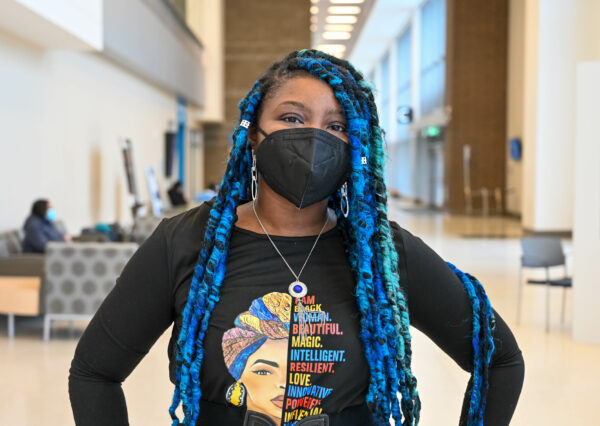Black History Month 2022 with Shâdé Chatrath
21
Feb
2022
Black History Month is not only a time to celebrate the culture and traditions of the Black Community, but also a time to engage in research and understanding in regards to the struggles, sacrifices, and contributions of Black individuals both of the past and present. Shâdé Chatrath, a Registered Midwife at Humber River Health, shared her thoughts on the importance of Black History and the ways in which others can celebrate the Black Community, this month and every month.
Tell us about your role.
I have been a Registered Midwife for about 12 years and have been practicing at Humber River for the past 2 years. As the term “midwife” means “with woman (person),” midwives are experts in normal, low-risk pregnancy, labour, birth and post-partum care for patients and their newborn (s) up to six weeks old. We use evidence-based research to provide up-to-date information and care to our patients that focuses on three important principles: Continuity of Care, Inform Choice, and Choice of Birth Place. We are also known as “Baby Catchers.” We believe that you deliver a pizza, not a baby- we facilitate and assist in the birthing process and essentially “catch the baby.”
As a midwife, I believe that God has bestowed a special gift onto me and that I act as a gatekeeper to protect and care for my patients. I am a Baby Catcher, but I am also a counsellor, a healer, and a guide. I support people in times of joy, as well as loss.

What does Black History Month mean to you?
Black History Month gives us an opportunity to focus on the amazing individuals in various professions providing care in the Black Community, while also recognizing the disparities and inequities of health and wellness in the Black Community.
It is important to recognize the negative impacts of social determinate on health and the gaps in the health care system. Black birthing parents and their infants are either injured or dying at an alarming rate in comparison to others. There is a sense of fear and disempowerment in the health care system. Midwifery care uses a family-centred approach to improve health and wellness, away from an anti-racism, anti-discrimination, anti oppression framework.
Another ongoing issue to recognize this month is the generational misconceptions of how the Black community feels pain, stemming from the 1800s. This continues to lead to biases, ignorance, and poor treatment of Black individuals trying to receive assistance in the health care system.
We must acknowledge these problems to take the necessary steps forward. Much work must be done to heal generational scars.
What obstacles have you had to overcome in your role?
As a Black midwife, I now know my worth and value. I know that the care I deliver to patients-regardless of their race, culture and gender- is just as good as a midwife who does not identify as Black. It took me a long time to realize and believe this. Just even talking about being Black and sharing my Black experiences was very taboo. Black History Month and the ongoing anti-black movement, has given people like me the venue to be heard, supported, valued, and celebrated.
Anything to add?
I would remind people to remember to embrace your talents, your gifts, your features, your wisdom, and your knowledge. Let’s lift each other up, celebrate each other, love each other, be an ally to each other.
We need to look at Black History as an opportunity to grow. Racism does not only exist in February, and neither should recognizing Black History. Black History Month is just a reminder- and just like any culture, race, or ethnicity- should be celebrated and embraced all year long.
